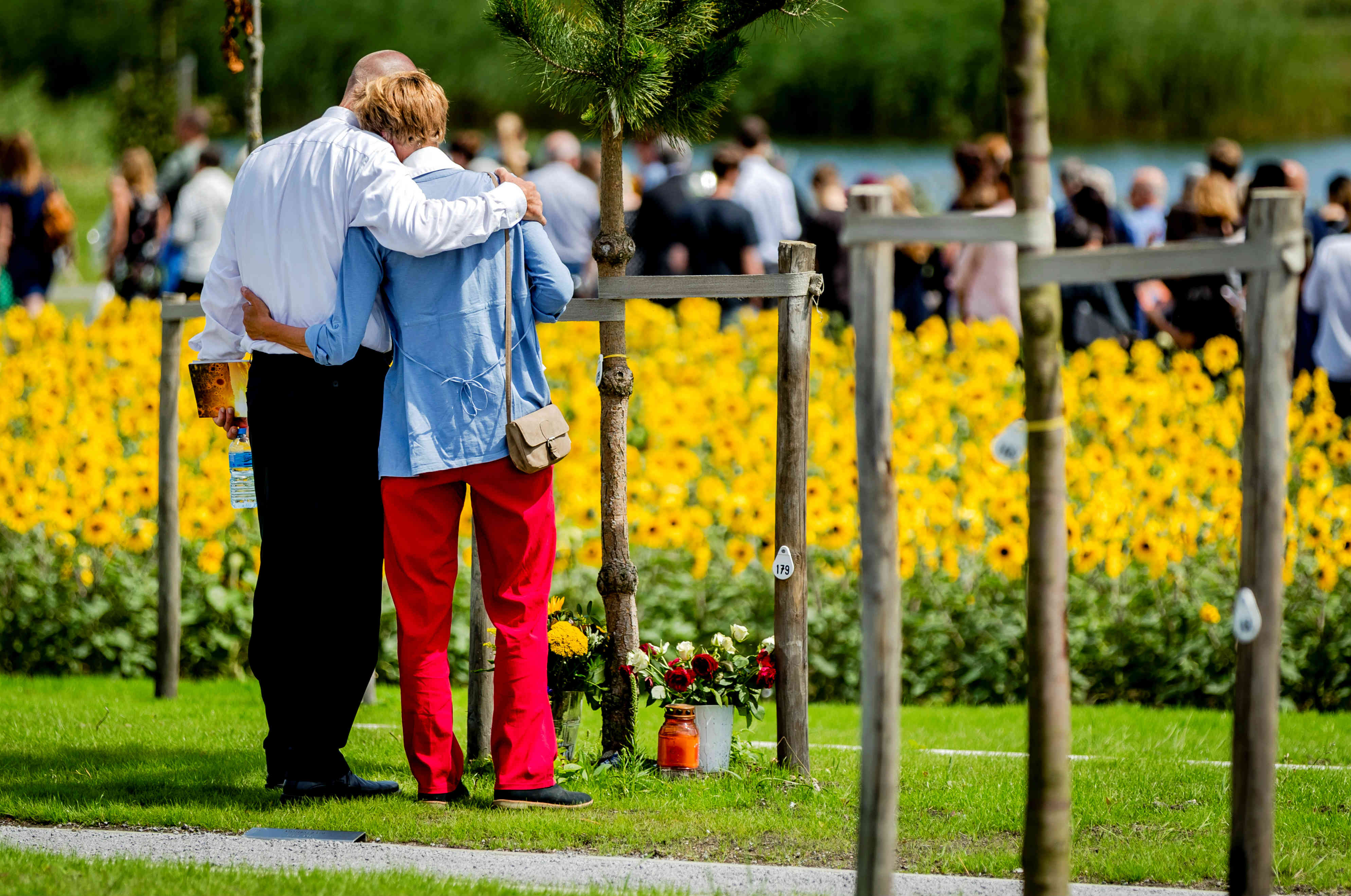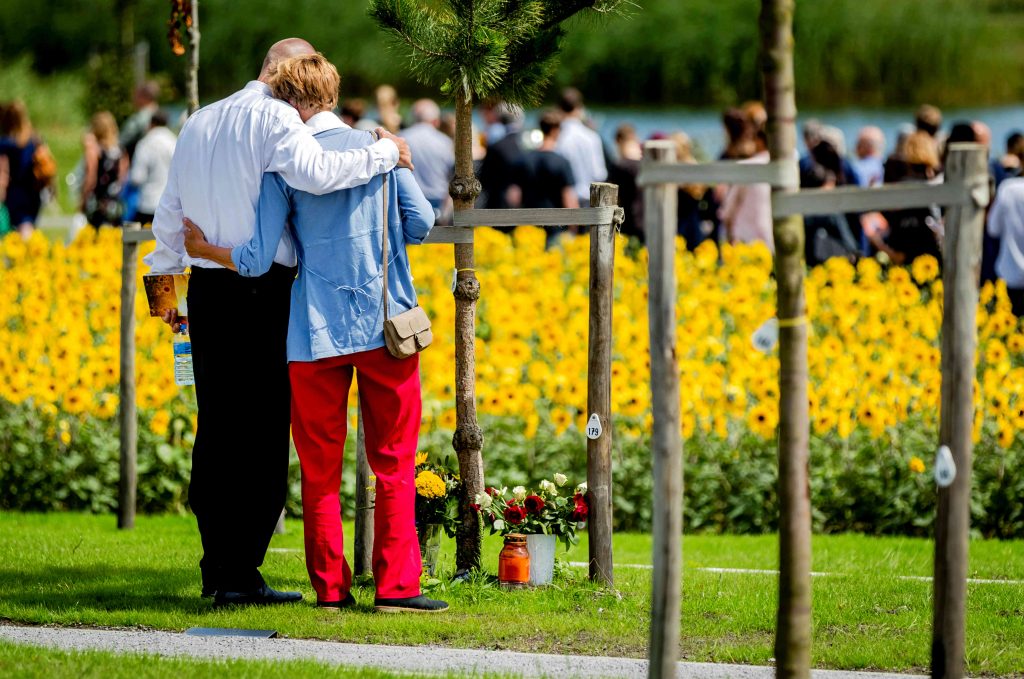
The first relative of one of the passengers of Malaysia Airlines Flight 17 that I ever met was Jordan Withers. Thanks to the BBC, we were brought together for the making of a documentary into one of the worst civil aviation disasters in modern history. That disaster was the downing of Malaysia Airlines Flight 17, or MH17, which was shot down by Russian-backed separatists in eastern Ukraine on July 17, 2014. All 298 aboard died.
At the time I was working in Kyiv as spokesperson to the OSCE Special Monitoring Mission to Ukraine. As part of the first international team to arrive at the crash site, I had intimate knowledge of what happened and Jordan wanted to include my account in the documentary.
In an odd twist of fate, out of all of the victims, Jordan’s uncle, Glenn Thomas, was as close as possible to me in terms of profession, lifestyle, and networks. We were both humanitarians, spokespeople, and former journalists. Glenn was any of us. At a moment’s notice, we’d deploy to some conference or disaster as a representative of a multilateral institution. We’d jump onto planes or volunteer for disaster work without a second thought.
On July 17, at the third anniversary commemoration of MH17 in Amsterdam, I met others who were connected to Glenn and the BBC documentary. Tracey, Glenn’s twin sister and Jordan’s mother. The Dutch priest who had ministered to the families of the victims in Hilversum. Silene, who lost her son in the crash. I met Glenn’s partner, an elegant man who’d travelled here in March to plant the tree that memorializes his lost friend. Robbie, who flew to Dnipropetrovsk and then hired a taxi to travel several hundred kilometers to the crash site in a hopeless search for his cousin’s body and belongings.
There were others I met and embraced that were part of the MH17 tragedy. The brother of Azreen—one of the two chief stewardesses aboard MH17. A native of Penang whose husband perished. The sister of another lead flight attendant.
We are all now a family, united by tragedy. Is it not strange how out of tragedy, new friendships and affectionate bonds can develop? Yesterday I saw Malaysians hugging Dutch; Britons embracing Australians. Some 2,000 people came together in a ceremony interrupted by tears, laughter, long periods of silence and reflection. I saw tearful relatives leaning affectionately against the young trees that were planted to remember those who perished—paralyzed by grief and desperate for answers.
Until July 17, 2014, the hundreds of people at the memorial park had no connection whatsoever to the simmering war in eastern Ukraine that not only brought down MH17, but which also has claimed more than 10,000 lives and displaced about two million people. That one missile has changed their lives forever.
In speaking with the relatives, I sensed that all are keen to see justice served swiftly, that those responsible for the heinous crime be tried as soon as possible.
To date, the Dutch-led Joint Investigation Team has identified 100 persons of interest that in one way or another are connected to the firing of the BUK missile that downed MH17. Some 200 police and judicial experts—using big data mining, relentless persistence, and plain old-fashioned gumshoe techniques—are said to be on the verge of naming those responsible, all of whom are believed to be in Russia or in Russian-controlled areas of the Donbas.
I sensed little optimism yesterday that the perpetrators will be extradited for trial to the Netherlands, which has assumed jurisdiction over the criminal case. But there is hope that they will be tried in absentia and face travel restrictions and sanctions over their business and properties.
One thing is certain: these families will not rest—nor will they be silenced—until those responsible are brought to justice. As one relative told me, “Even if they didn’t mean to shoot down a commercial airliner, there is one word we want to hear—and that is ‘sorry.’”
Sometimes in life, with little explanation, we are placed in a situation that is entirely unplanned, where our skills and compassion are put to the test. For me the reunions with the families over the past couple of days closes an enormous circle—a huge circle that started three years ago amid the chaos and painfulness of the crash site—and which ended with the warm embraces from relatives of the victims. It’s a day I will never forget.
Michael Bociurkiw is the former spokesperson for the OSCE Special Monitoring Mission to Ukraine. He was a member of the OSCE team that arrived at the MH17 crash site some twenty-four hours after the plane came down. He tweets @mikeybbq.
Image: Relatives of the victims of the Malaysia Airlines crash in Ukraine in 2014 attend an event to commemorate the disaster in Vijfhuizen, Netherlands, July 17, 2017. REUTERS/Remko de Waal/Pool

